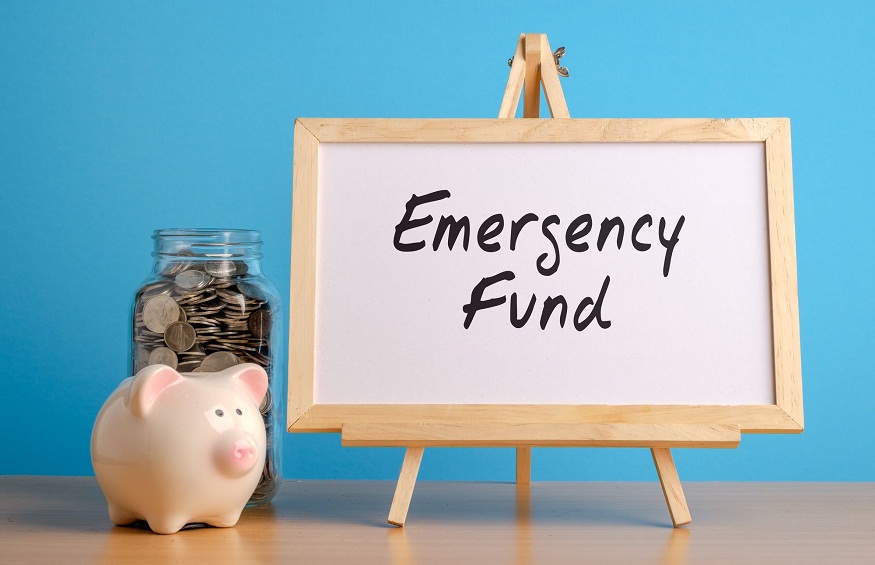In today’s uncertain world, unexpected financial emergencies can strike at any moment, leaving individuals and families vulnerable to financial instability. This is where the importance of emergency funds becomes evident. An emergency fund is a reserve of cash set aside to cover unforeseen expenses or financial setbacks, providing a much-needed safety net during times of crisis.
Understanding Emergency Funds
Emergency funds are essentially a financial cushion that individuals create to protect themselves from unexpected expenses. These funds are separate from regular savings and are specifically designated for emergencies such as medical bills, car repairs, or sudden job loss.
Emergency funds serve as a crucial component of financial planning because they provide a sense of security and stability in the face of uncertainty. Without emergency funds, individuals may be forced to rely on high-interest credit cards, and loans, or even risk dipping into retirement savings to cover unexpected expenses.
It is important to differentiate emergency funds from regular savings and investments. While savings are typically earmarked for specific goals or purchases, and investments are intended for long-term growth, emergency funds are reserved exclusively for unforeseen financial emergencies.
The Risks of Being Unprepared
Financial emergencies can come in various forms, including sudden medical expenses, major car repairs, home repairs, or even unexpected job loss. Without adequate savings in place, individuals may find themselves struggling to cover these expenses, leading to financial stress and hardship.
Not having emergency funds can have significant consequences. Individuals may be forced to take on high-interest debt, liquidate assets, or even face bankruptcy in extreme cases. Moreover, the emotional toll of financial instability can lead to increased stress, anxiety, and strain on personal relationships.
Financial insecurity can take a toll on mental and emotional well-being. The constant worry about how to cover unexpected expenses can lead to heightened stress, anxiety, and a sense of helplessness. Having an emergency fund in place can alleviate some of this stress by providing a financial safety net.
Building an Emergency Fund
When building an emergency fund, it is essential to set realistic savings goals based on individual circumstances and expenses. Financial experts often recommend saving three to six months’ worth of living expenses, but the appropriate amount may vary depending on factors such as income, expenses, and risk tolerance.
To determine the appropriate size of an emergency fund, individuals should assess their monthly expenses, income sources, and potential risks. Consideration should be given to essential expenses such as housing, utilities, food, and transportation, as well as discretionary spending.
Saving money efficiently requires discipline and planning. Automated transfers, setting up a separate savings account specifically for emergency funds, and cutting unnecessary expenses are effective strategies for building savings over time. Additionally, finding ways to increase income, such as taking on a side hustle or freelancing, can accelerate savings growth. Check out Saxo for more information.
Maintaining and Growing Emergency Funds
Financial circumstances can change over time, so it is essential to regularly reassess savings goals and adjust as needed. Life events such as marriage, children, or career changes as well as market fluctuations maynecessitate revisiting savings targets and adjusting contributions accordingly.
In the event of an emergency, it is crucial to replenish emergency funds as soon as possible. Allocate a portion of income or windfalls towards replenishing the fund until it reaches its target balance again. Consideration should also be given to adjusting spending habits or finding additional sources of income to accelerate replenishment.
Windfalls or surplus income, such as tax refunds, bonuses, or inheritances, present an excellent opportunity to bolster emergency funds. Instead of splurging on discretionary expenses, consider allocating a portion of windfalls towards building savings for future financial security.
Alternative Options for Financial Protection
Insurance coverage, including health insurance, disability insurance, and life insurance, provides additional protection against unexpected financial emergencies. By paying regular premiums, individuals can mitigate the financial risks associated with medical expenses, disability, or loss of income due to death.
Lines of credit or personal loans can serve as backup options for covering unexpected expenses when emergency funds are depleted. However, it is important to use credit responsibly and avoid accumulating high-interest debt whenever possible.
Community resources and assistance programs, such as food banks, rental assistance programs, or government aid, may provide temporary relief during times of financial hardship. Explore local resources and support networks for additional assistance when needed.
Overcoming Common Obstacles
Balancing competing financial priorities can be challenging, but it is essential to prioritise building emergency funds as a foundational step towards financial security. Evaluate spending habits, prioritise needs over wants, and allocate resources accordingly to ensure consistent savings growth.
Psychological barriers such as procrastination, denial, or fear of failure can hinder savings efforts. Recognise and address these barriers by setting realistic goals, breaking them down into manageable steps, and seeking support from friends, family, or financial advisors when needed.
Conclusion
In conclusion, the importance of emergency funds cannot be overstated in today’s unpredictable world. Building and maintaining emergency funds is a critical aspect of financial planning, providing a safety net against unexpected expenses and financial setbacks. By understanding the significance of emergency funds, individuals can take proactive steps to secure their financial future and achieve peace of mind.

